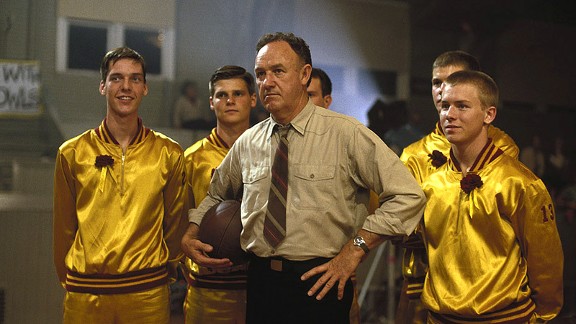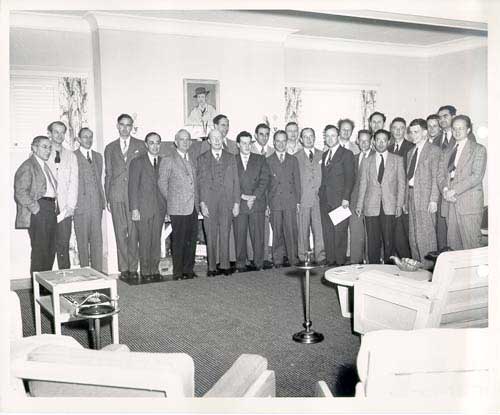The stupid Steven Pinker business from a few weeks ago turned out to do one good thing after all. It led to this post at Making Science Public, which quoted some books by Jacob Bronowski that sounded relevant to my interests. And, indeed, on checking The Common Sense of Science out of the college library,… Continue reading How to Think Like a Scientist, Sixty Years Ago
Category: Book Writing
The Science of Magic
I started out blogging about books, way back in 2001, but somewhat ironically, I rarely post anything about books any more. My free time has been whittled down to the point where book blogging is time taken away from other stuff, and it’s never been that popular here. I post reviews of science books that… Continue reading The Science of Magic
Wanted: The Hoosiers of Science
I’ve been revising a chapter on collaboration in science for the book-in-progress, making an analogy to team sports. And it occurred to me as I was trying to find a way to procrastinate, that while science is a highly collaborative endeavor, most of the popular stories that get told about science are not. There’s no… Continue reading Wanted: The Hoosiers of Science
How to Teach Physics to Your Thai Dog
The list of editions of my books in character sets I can’t read just got bigger: I got author copies of the Thai edition of How to Teach Physics to Your Dog. The cover is the “featured image” above (and I’ll copy it below for those on RSS), and I love the goofy tongue on… Continue reading How to Teach Physics to Your Thai Dog
Naming Names in QED
I’m doing edits on the QED chapter of the book-in-progress today, and I’m struck again by the apparent randomness of the way credit gets attached to things. QED is a rich source of examples of this, but two in particular stand out, one experimental and the other theoretical. On the experimental side, it’s interesting to… Continue reading Naming Names in QED
Sports and Statistics: Nobody Deals Well With Randomness
One of the chapters of the book-in-progress, as mentioned previously, takes the widespread use of statistics in sports as a starting point, noting that a lot of the techniques stat geeks use in sports are similar to those scientists use to share and evaluate data. The claim is that anyone who can have a halfway… Continue reading Sports and Statistics: Nobody Deals Well With Randomness
Science Is Not Solitary
There was another round of the “who counts as a scientist?” debate recently, on Twitter and then on the Physics Focus blog. In between those, probably coincidentally (he doesn’t mention anything prompting it), Sean Carroll offered a three-step definition of science: Think of every possible way the world could be. Label each way an “hypothesis.”… Continue reading Science Is Not Solitary
Disappearing Quotes: Sophisticated Sports Coverage
One of the great frustrations of my intellectual life, such as it is, is the problem of the disappearing quote. This is a function of having acquired a broad liberal education (in the sense of “liberal arts college” not the sense of “person to the left of Rush Limbaugh”) in a somewhat haphazard manner. My… Continue reading Disappearing Quotes: Sophisticated Sports Coverage
260 Million Scientists a Month
The day I bought my iPad, as I was taking it out of the box, SteelyKid (then 3) came bopping into my office, spotted it, and declared “I want to play Angry Birds!” It’s a remarkable demonstration of the genius of their product: not only have they created a game that a three-year-old can play,… Continue reading 260 Million Scientists a Month
How to Think Like a Scientist: Taking Stock
For the last several months, I’ve been poking along on the book-in-progress in a very constrained manner– basically, I get to work on it in three-hour chunks on Tuesdays when I don’t have class (and this term, Thursdays as well). This is, as you might imagine, incredibly frustrating, though I do get some book-related stuff… Continue reading How to Think Like a Scientist: Taking Stock





